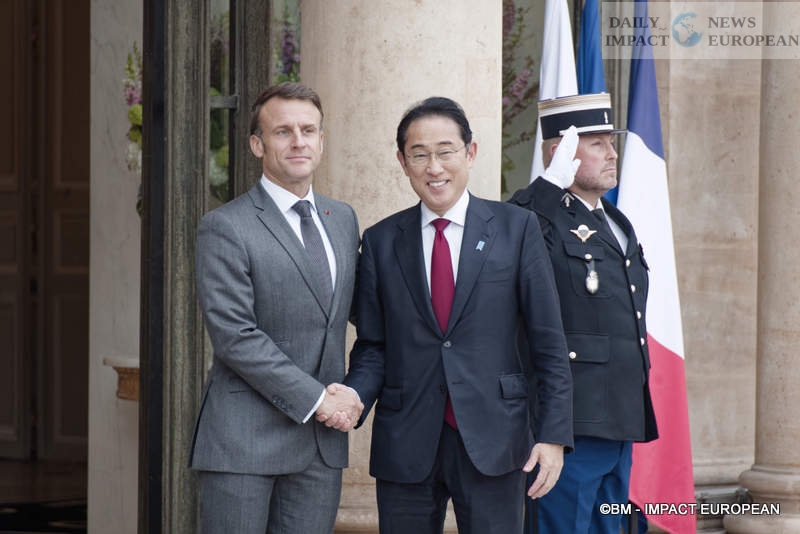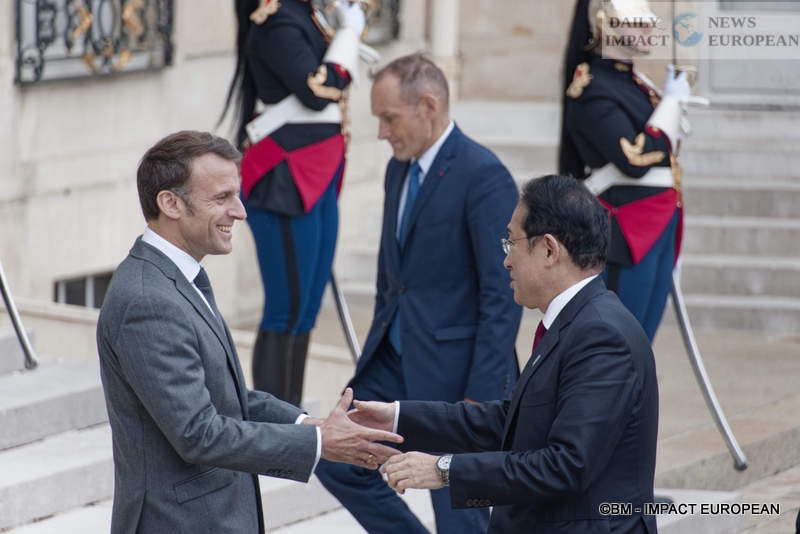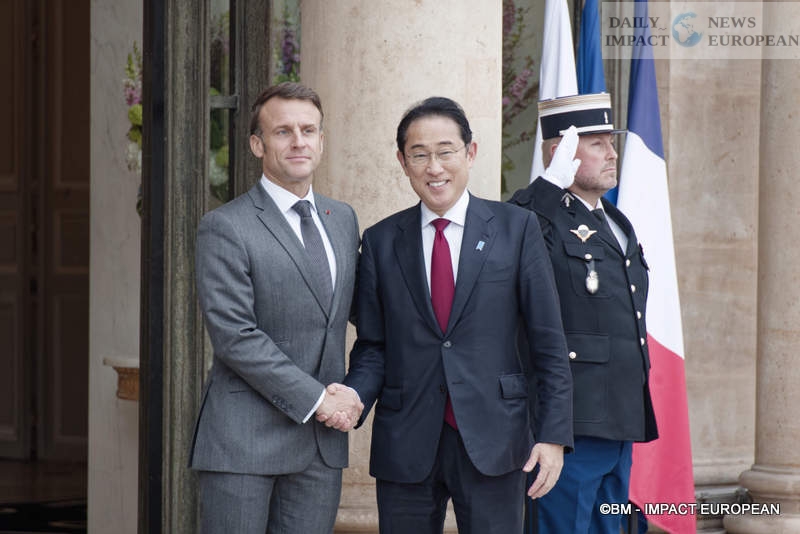France and Japan agree to begin discussions on reciprocal military access.
France and Japan, the G7 allies, have carried out a number of joint military exercises in recent years – in a bilateral or broader framework – Paris has been pushing Tokyo for more than a year to begin bilateral discussions on a Reciprocal Access Agreement (RAA). Such an agreement establishes a framework favoring military cooperation. It makes it possible, in particular, to facilitate the entry of soldiers from said foreign country and military equipment.
Military ties between France and Japan are old: their beginnings date back to the mission of Captain Jules Chanoine, who was sent to Yokohama in 1866, to train the army of shogun Yoshinobu Tokugawa. They strengthened in the 1920s, Paris having contributed to the development of the Japanese air forces. However, this relationship ended shortly before the Second World War.
Then equipped with a pacifist Constitution, Japan became a sort of American protectorate… And, in military matters, it maintained an almost exclusive relationship with the United States. However, the evolution of the security context in the Indo-Pacific, marked by Chinese claims, territorial disputes with Russia (notably over the Kuril Islands) and the nuclear activities of North Korea, has changed the situation.
To deal with this, Japan has been constantly increasing its military spending for around ten years now and has amended its Constitution to include the concept of collective self-defense. In addition, it seeks to establish military cooperation with countries other than the United States [such as with India and the Philippines], or even to get closer to organizations like NATO. This is how it plans to join the AUKUS pact and has sealed a partnership with the United Kingdom and Italy to develop a 6th generation combat aircraft.
France and Japan agreed on Thursday May 2 to launch formal negotiations on a reciprocal access agreement between their armies, declared the Elysée and the Japanese government, in the context of growing maritime tensions in the Indo-Pacific and the war in Ukraine. This announcement, which illustrates the strengthening of military cooperation between the two countries, came as French President Emmanuel Macron received Japanese Prime Minister Fumio Kishida, who was visiting Paris, during the day.
Emmanuel Macron and Fumio Kishida, meeting for a working lunch, “agreed to strengthen strategic and defense cooperation between France and Japan by launching official negotiations with a view to concluding a reciprocal access agreement, which aims to promote interoperability” between the armies of the two countries, the Elysée reported in a press release.
Japan, which is home to the largest contingent of US troops deployed overseas, concluded RAAs with Australia and the United Kingdom in December 2022. He also entered into discussions with the Philippines.
According to the Japanese representative, it could take around a year for Tokyo and Paris to seal their agreement. Negotiations with Australia had lasted about two years; those with the United Kingdom, one year.
France, which has territories and troops in the Indo-Pacific, is seeking to strengthen its presence in the region. Paris wants to highlight its ability to play an increased role in Tokyo’s defense industry, as is already the case for Japanese civil nuclear power. The French Minister of the Armed Forces, Sébastien Lecornu, announced last year that Paris hoped to conclude an RAA with Tokyo.
In 2015, 150 years after Captain Chanoine’s mission, Japan and France relaunched their military cooperation by signing an intergovernmental agreement on the transfer of defense equipment and technologies. And there was talk, at the time, of an acquisition and cross-services agreement [ACSA]. This was finalized three years later, with the objective of strengthening interoperability between French and Japanese forces and facilitating their participation in joint operations and exercises. Furthermore, the two countries agreed to carry out joint research on new mine detection technology.
This involves facilitating the organization of joint [or multinational] exercises as well as participation in regional operations. Thus, as part of the AITO mission, which aims to document violations of international sanctions imposed on North Korea, the French Navy has deployed, on several occasions, a Falcon 200 to the Japanese air base of Futnema.
Copyright ©2024 – IMPACT EUROPEA






More Stories
Meeting between French and Israeli counterparts Emmanuel Macron and Isaac Herzog at the Élysée
“Dansong” at the Avignon Off Festival 2024
Olympic Flame at the Jardin du Musée Mac Val